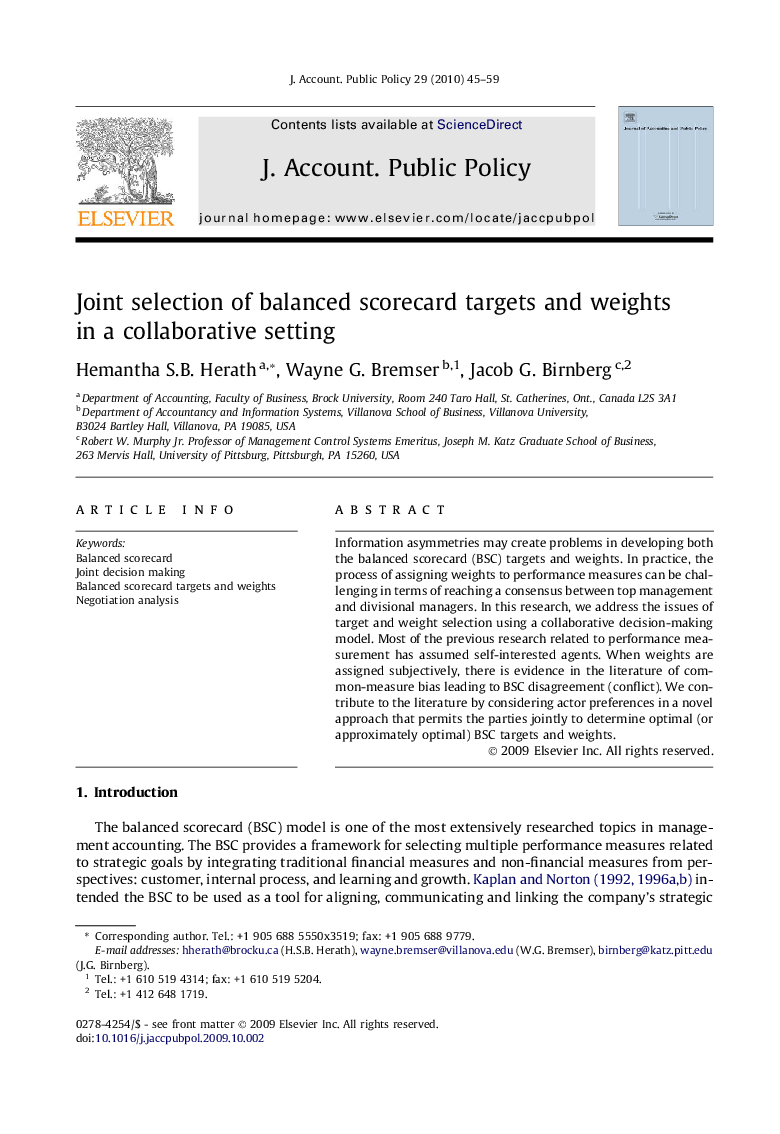| Article ID | Journal | Published Year | Pages | File Type |
|---|---|---|---|---|
| 1006055 | Journal of Accounting and Public Policy | 2010 | 15 Pages |
Information asymmetries may create problems in developing both the balanced scorecard (BSC) targets and weights. In practice, the process of assigning weights to performance measures can be challenging in terms of reaching a consensus between top management and divisional managers. In this research, we address the issues of target and weight selection using a collaborative decision-making model. Most of the previous research related to performance measurement has assumed self-interested agents. When weights are assigned subjectively, there is evidence in the literature of common-measure bias leading to BSC disagreement (conflict). We contribute to the literature by considering actor preferences in a novel approach that permits the parties jointly to determine optimal (or approximately optimal) BSC targets and weights.
